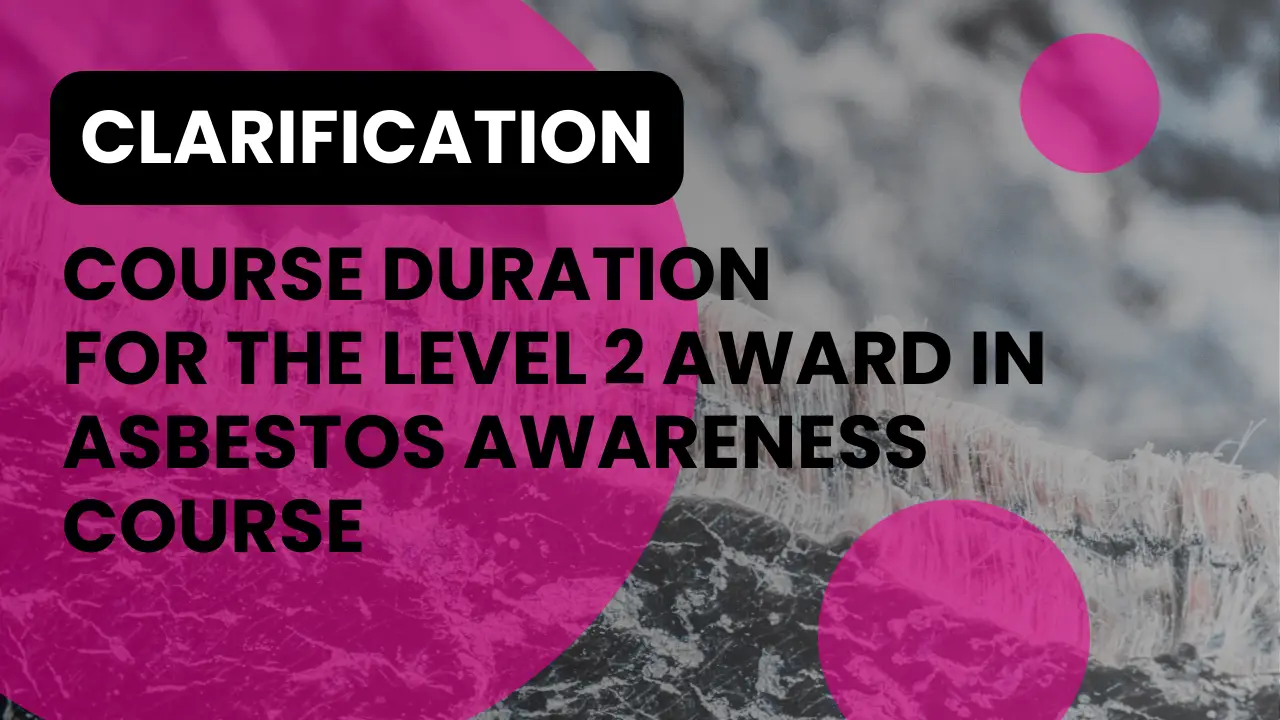No products in the basket.

Clarification on Course Duration – Level 2 Award in Asbestos Awareness
A number of our clients have mentioned being questioned about the duration of this qualification. The statement is designed to help clear up any misunderstandings—particularly from those who may not have a training background or be familiar with regulated qualifications—and to support understanding of both the value of the qualification your company has achieved and how it compares to lower-level CPD alternatives.
We would like to formally clarify that while the Level 2 Award in Asbestos Awareness includes a Guided Learning Hours (GLH) value, this is indicative only—it is not a fixed or mandatory course duration. As with other regulated qualifications, GLH provides a benchmark for the average learner but is not prescriptive. Delivery should always reflect the learner’s prior knowledge, experience, and needs.
This principle is widely accepted across regulated qualifications. For example, many NVQs list 80 GLH+, but these hours do not physically occur in a classroom or onsite—they are estimated based on typical learner journeys and vary greatly depending on the individual’s experience. The same logic applies to asbestos awareness: a learner with existing understanding may require less guided input, while another may benefit from a more detailed session.
The Level 2 Award in Asbestos Awareness is a regulated qualification, quality assured by an awarding organisation and aligned with the UK qualification framework. It offers significantly higher quality standards than CPD-style courses, which are not regulated, have no formal assessment, and are often delivered with minimal oversight.
Despite this, there remains a persistent industry preference for these lower-level courses, largely due to familiarity and client expectations. In reality, the regulated L2 Award surpasses these options in both rigour and learner outcomes, and it is time the industry caught up with this shift towards formal, recognised training.
Unfortunately, some providers and employers are now facing scrutiny over course duration—not because of delivery concerns, but seemingly due to the £600 CITB grant value currently attached to the qualification (available until the end of August). CITB set this value, not providers, yet we are being questioned for adhering to both awarding body requirements and CITB’s own funding structure.
It is also worth highlighting the contradiction in CITB’s approach. On the one hand, CITB promotes the upskilling of the workforce through regulated, formal qualifications. On the other, providers delivering exactly that are being challenged—often in favour of unregulated CPD alternatives. For context, no one is questioning how long an NVQ took to complete—and rightly so. Competence-based learning must be judged on outcomes, not minutes on a clock.
We have already raised our concerns with the Training Provider Network and individual CITB Regional Advisors and CITB auditors particularly regarding the tone and nature of questions employers are being asked, which undermines the trust we’ve built with clients.
We remain open to ongoing dialogue with CITB and welcome the opportunity to work collaboratively on any clarification needed around GLH or grant values—provided this is done in a way that supports, not undermines, regulated qualifications and those committed to raising industry standards.